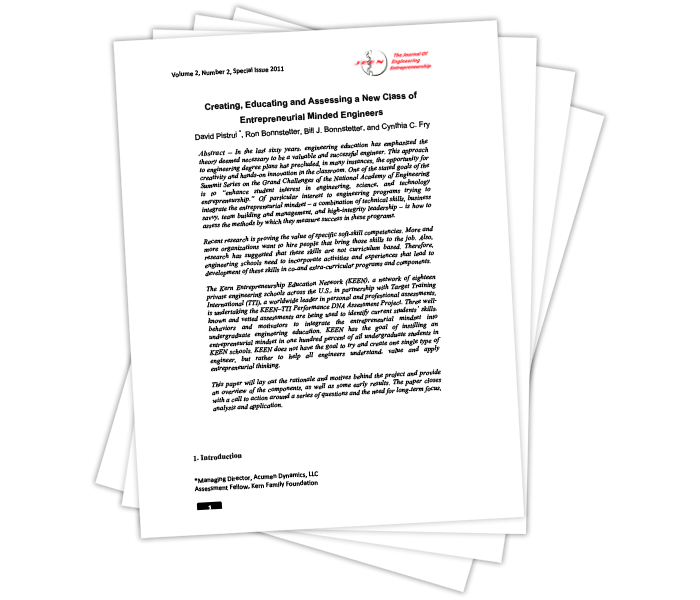
Apr 3, 2019
There is a great need to develop a new class of entrepreneurially minded engineers in America. The research presented in this work is an effort to address these dire needs by identifying the required competencies, behaviors and motivators.

Apr 3, 2019
Drawing from a data sample of 4,965 undergraduate students, and 313 EMEs, this paper employs a combination of descriptive and multivariate methods and techniques to address the following opportunities: 1 – Mapping the behavioral styles, motivators and personal and professional skills of practicing EMEs to establish an industry benchmark, 2 – Creating a series of undergraduate maps that profile the behavioral styles, motivators and personal and professional skills of engineering students participating in KEEN programs, and 3 – Mapping, analyzing and comparing the behavioral styles, motivators and personal and professional skills of EMEs, engineers and undergraduate engineering students.

Apr 3, 2019
This research illustrates that the DISC can be used with relatively young subjects prior to their entering the job market and can successfully be used as a predictive tool. In the Difference Model, entering GPA and the difference score on the D component were significant indicators of success.

Apr 3, 2019
This is a study of over 350 science education pre-service teachers, gathered over a 19-year period, examined behaviors, motivators and soft skills. The behavioral data suggests that most of the students who have traditionally come to teaching within this program possess attributes that make them slow to change and even slower to lead a reform effort. Have we created educational mediocrity in our building by unknowingly recruiting, preparing and placing teachers whose primary value is maintaining traditions and are afraid of change?

Apr 3, 2019
The purpose of this quantitative correlational research was to examine the Big Five personality traits: openness to experience, conscientiousness, extraversion, agreeableness and neuroticism, and behavioral style dimensions: dominance, influence, steadiness and compliance, as potential predictors of authentic leadership among leaders in U.S. organizations. This study found initial evidence for the potential ability of conscientiousness, extraversion and agreeableness to predict authentic leadership.




